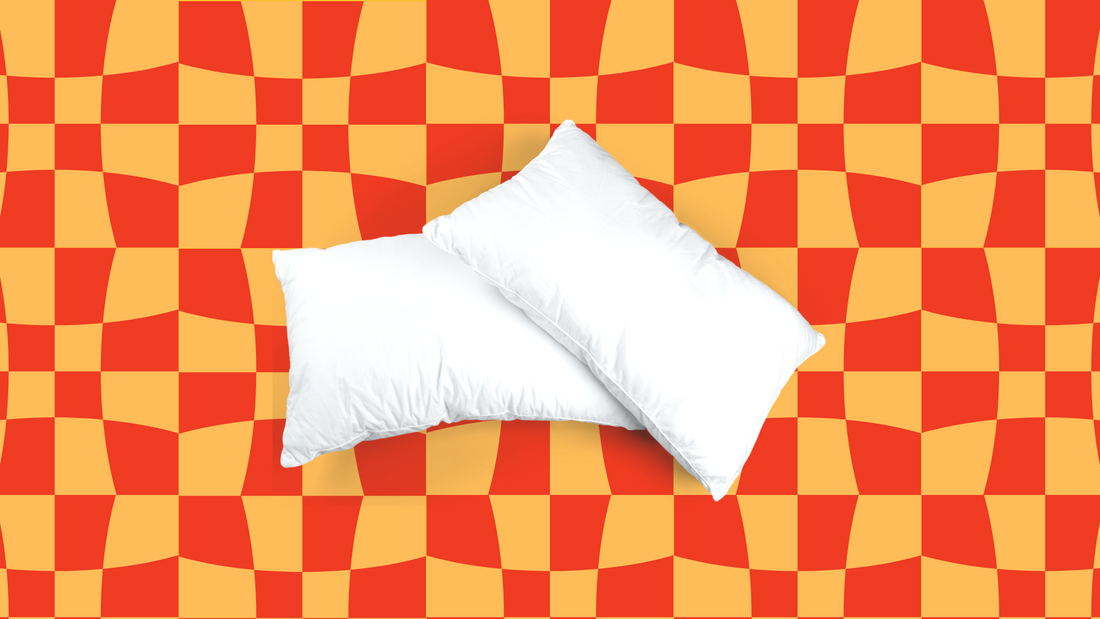⚠️ Hey pals! We talk about hypos, high blood glucose and other potentially triggering topics in this article. We won’t hold it against you if you avoid this one. ⚠️
Type 1 Diabetes, like that weird smell in your fridge, is Just. Always There. (Whyyy?) But there’s a particular time of day that I think it’s more of an a*shole than usual.
Bedtime.
It’s a significant stretch of time where you have to place a LOT of trust in your body and the choices you’ve made that day. So it probably won’t come as a surprise to you that people with diabetes report less sleep in general, and less good quality sleep than people without it.
A 2011 study found that 35% of people with Type 1 Diabetes reported poor sleep – and we’d hazard a guess that this number would skyrocket if we could survey the entire T1D community.
Don’t you hate bedtime too?
Some of the things we worry about at bedtime
-
Blood sugar going high – Because of random hormone surges, or because we dosed incorrectly for that late-night burrito.
-
Blood sugar going low – Thanks to that unexpected run to get to the train on time, or because maybe there weren't as many carbs in dinner as we assumed.
-
Making the right call – Should I take a corrective dose now? Should I eat something? Will a hot bath make me hypo? F*ck. I have no idea.
-
Staying awake wanting to test again – Because trusting your body/yourself/all the decisions you made today can be hard.
-
Not waking up – I mean, we’re all thinking it right? Sorry if that’s a bit morbid, but it’s probably at the back of your mind somewhere.
Bedtime sucks. We get it. (And yes, we all silently hate on our partners for drifting off to a peaceful sleep without a worry in the world. Those guys are the worst.)
A vicious cycle: The link between blood glucose and sleep
The stupid thing about T1D and sleep is that they affect each other in this really unfair cycle that looks something like this:
Wild blood sugar levels = bad sleep = wild blood sugar levels the next day = worrying and getting no sleep the next night …
And so on into eternity.
A night of sleep deprivation decreases insulin sensitivity, and can also affect your stress levels, appetite, and physical energy – all of which play into blood glucose management too. It makes sense that diabetics who report disrupted sleep patterns see higher HbA1c levels.
So, great. Sleep sucks for us. What can we do about it? (Other than jumping over to the Stripped Supply Insta account to have a good whinge. That does help though – do it.)

Tips for taking the worry out of bedtime
First of all, don’t rely on dumb advice like ‘get your blood sugar under control’. (Yeah, thanks I’ll just go do that then.)
No matter how hard you work to get your blood glucose in line, your sleep may still be impacted. Studies show that sleep disturbances are pretty similar for people with HbA1cs over 7.5% and under 7.5%.
But don’t give up on sleep! Here are some things that can actually help.
Follow a routine
Creating a consistent bedtime routine helps give your body cues that it’s time to wind down and get into ‘sleep mode’.
Try and get in the habit of doing the same thing each night. Test your blood sugar at the same time, journal, meditate or read a book before bed. Try to avoid caffeine, alcohol, the news, and screens in general. We all love a late night scroll, but this can signal to your brain (and your blood glucose) that it’s time to be awake and stressin’.
But, you know. We’re not your mum. Do what you want.

Use a CGM if you can
Not everyone can afford or access continuous glucose monitors (CGMs) all the time, but even if you can use one every now and again, the data is awesome at showing you what your blood sugar does overnight. The point isn’t to obsess over it or get it ‘perfect’, but to notice nighttime patterns.
Some CGMs can also alert you if your blood sugar is spiking or dropping in the night. This can take a bit of anxiety away, knowing you’ll be woken up if you need to do something.
Just be aware, readings can sometimes be wrong (especially if you lie on the CGM weirdly) and the alarms may drive you up the wall if they keep you awake all night. Find a sensor that helps alleviate your stress rather than adding to it.
Meditate or try to relax
If your mind is constantly freaking out while you try to fall asleep, it’ll become natural to fall into this habit. Meditation can disrupt your go-to neural pathways of stress and anxiety. Try out a meditation app like Headspace, Calm, or Insight Timer before bed.
Get mental health help if you need
If sleep anxiety is seriously impacting your life, see someone about it! Shop around to find a psychologist who ‘gets’ you and offers useful help.
Blood sugar antics, as Miss Diabetes perfectly illustrates, can really mess up our sleep patterns – leaving us to lie awake worrying half the night, brush our teeth twelve times before bed, and wake up in a pool of test strips more often than we’d like.
But at some point, you just have to let go and admit you’re doing your best. Yes, there’s a lot to think about before you switch your brain off for eight hours. But if you can focus on calming your mind, you’ll most likely make better decisions, drift off to sleep more easily, and keep nasty stress hormones at bay overnight.

